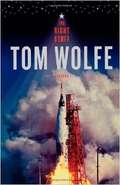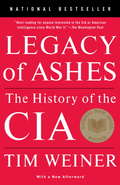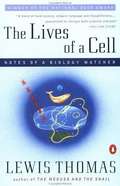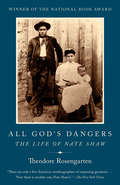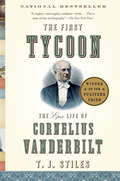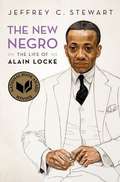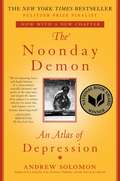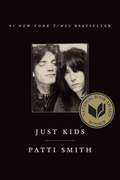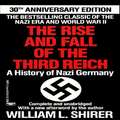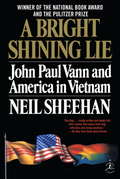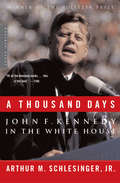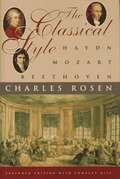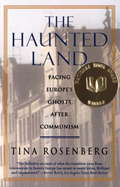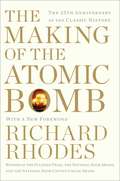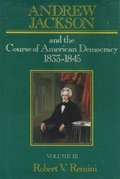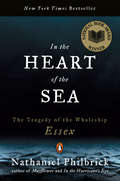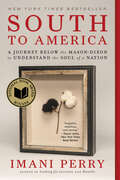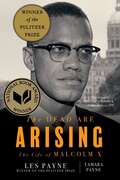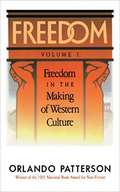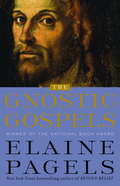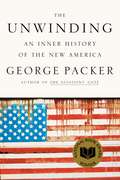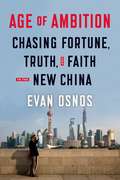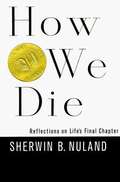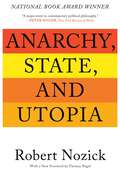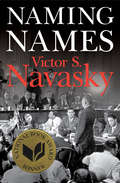Special Collections
National Book Award Winners - Non-Fiction
- Table View
- List View
The Right Stuff
by Tom WolfeThe Right Stuff is Tom Wolfe's deft account of a cast of heroes, introduced to America with the explosion of space exploration in the romantic heyday of the 20th century and encapsulated in Neal Armstrong's "one giant step for mankind."
Beginning with the first experiments with manned space flight in the 1940s, remembering the feats of Chuck Yeager and the breaking of the sound barrier, and focusing in on the brave pilots of the Mercury Project, Wolfe's ability to marry historical fact with dramatic intensity is nowhere more evident than in The Right Stuff.
Winner of the National Book Award
Legacy of Ashes
by Tim WeinerWith shocking revelations that made headlines in papers across the country, Pulitzer-Prize-winner Tim Weiner gets at the truth behind the CIA and uncovers here why nearly every CIA Director has left the agency in worse shape than when he found it; and how these profound failures jeopardize our national security.
Lives of a Cell
by Lewis ThomasElegant, suggestive, and clarifying, Lewis Thomas's profoundly humane vision explores the world around us and examines the complex interdependence of all things. Extending beyond the usual limitations of biological science and into a vast and wondrous world of hidden relationships, this provocative book explores in personal, poetic essays to topics such as computers, germs, language, music, death, insects, and medicine. Lewis Thomas writes, "Once you have become permanently startled, as I am, by the realization that we are a social species, you tend to keep an eye out for the pieces of evidence that this is, by and large, good for us."
Winner of the National Book Award
All God's Dangers
by Theodore RosengartenClassic of oral history tells the life story of Nate Shaw, an illiterate black sharecropper who stood up against white farmers in the 1930's and spent time in prison for it. Includes much folklore and information about rural life.
Winner of the National Book Award
The First Tycoon
by T. J. StilesA gripping, groundbreaking biography of the combative man whose genius and force of will created modern capitalism.
Founder of a dynasty, builder of the original Grand Central, creator of an impossibly vast fortune, Cornelius "Commodore" Vanderbilt is an American icon. Humbly born on Staten Island during George Washington's presidency, he rose from boatman to builder of the nation's largest fleet of steamships to lord of a railroad empire. Lincoln consulted him on steamship strategy during the Civil War; Jay Gould was first his uneasy ally and then sworn enemy; and Victoria Woodhull, the first woman to run for president of the United States, was his spiritual counselor. We see Vanderbilt help to launch the transportation revolution, propel the Gold Rush, reshape Manhattan, and invent the modern corporation--in fact, as T. J. Stiles elegantly argues, Vanderbilt did more than perhaps any other individual to create the economic world we live in today.
In The First Tycoon, Stiles offers the first complete, authoritative biography of this titan, and the first comprehensive account of the Commodore's personal life. It is a sweeping, fast-moving epic, and a complex portrait of the great man. Vanderbilt, Stiles shows, embraced the philosophy of the Jacksonian Democrats and withstood attacks by his conservative enemies for being too competitive. He was a visionary who pioneered business models. He was an unschooled fistfighter who came to command the respect of New York's social elite. And he was a father who struggled with a gambling-addicted son, a husband who was loving yet abusive, and, finally, an old man who was obsessed with contacting the dead.
The First Tycoon is the exhilarating story of a man and a nation maturing together: the powerful account of a man whose life was as epic and complex as American history itself.
Winner of the National Book Award
Winner of the Pulitzer Prize
The New Negro
by Jeffrey C. StewartWinner of the 2018 National Book Award for Nonfiction.
A tiny, fastidiously dressed man emerged from Black Philadelphia around the turn of the century to mentor a generation of young artists including Langston Hughes, Zora Neale Hurston, and Jacob Lawrence and call them the New Negro -- the creative African Americans whose art, literature, music, and drama would inspire Black people to greatness.
In The New Negro: The Life of Alain Locke, Jeffrey C. Stewart offers the definitive biography of the father of the Harlem Renaissance, based on the extant primary sources of his life and on interviews with those who knew him personally. He narrates the education of Locke, including his becoming the first African American Rhodes Scholar and earning a PhD in philosophy at Harvard University, and his long career as a professor at Howard University. Locke also received a cosmopolitan, aesthetic education through his travels in continental Europe, where he came to appreciate the beauty of art and experienced a freedom unknown to him in the United States. And yet he became most closely associated with the flowering of Black culture in Jazz Age America and his promotion of the literary and artistic work of African Americans as the quintessential creations of American modernism. In the process he looked to Africa to find the proud and beautiful roots of the race. Shifting the discussion of race from politics and economics to the arts, he helped establish the idea that Black urban communities could be crucibles of creativity. Stewart explores both Locke's professional and private life, including his relationships with his mother, his friends, and his white patrons, as well as his lifelong search for love as a gay man.
Stewart's thought-provoking biography recreates the worlds of this illustrious, enigmatic man who, in promoting the cultural heritage of Black people, became -- in the process -- a New Negro himself.
The Noonday Demon
by Andrew SolomonWith uncommon humanity, candor, wit, and erudition, award-winning author Andrew Solomon takes the reader on a journey of incomparable range and resonance into the most pervasive of family secrets. His contribution to our understanding not only of mental illness but also of the human condition is truly stunning.
The Noonday Demon examines depression in personal, cultural, and scientific terms. Drawing on his own struggles with the illness and interviews with fellow sufferers, doctors and scientists, policymakers and politicians, drug designers and philosophers, Solomon reveals the subtle complexities and sheer agony of the disease. He confronts the challenge of defining the illness and describes the vast range of available medications, the efficacy of alternative treatments, and the impact the malady has had on various demographic populations around the world and throughout history. He also explores the thorny patch of moral and ethical questions posed by emerging biological explanations for mental illness.
The depth of human experience Solomon chronicles, the range of his intelligence, and his boundless curiosity and compassion will change the reader's view of the world.
Just Kids
by Patti SmithPatti Smith would evolve as a poet and performer, and Robert Mapplethorpe would direct his highly provocative style toward photography. Bound in innocence and enthusiasm, they traversed the city from Coney Island to Forty-second Street, and eventually to the celebrated round table of Max's Kansas City, where the Andy Warhol contingent held court. In 1969, the pair set up camp at the Hotel Chelsea and soon entered a community of the famous and infamous- the influential artists of the day and the colorful fringe. It was a time of heightened awareness, when the worlds of poetry, rock and roll, art, and sexual politics were colliding and exploding. In this milieu, two kids made a pact to take care of each other. Scrappy, romantic, committed to create, and fueled by their mutual dreams and drives, they would prod and provide for one another during the hungry years. Just Kids begins as a love story and ends as an elegy. It serves as a salute to New York City during the late sixties and seventies and to its rich and poor, its hustlers and hellions. A true fable, it is a portrait of two young artists' ascent, a prelude to fame.
Winner of the National Book Award
The Rise and Fall of the Third Reich
by William L. ShirerBefore the Nazies could destroy the files, famed foreign correspondent and historian William L. Shirer sifted through the massive self-documentation of the Third Reich, to create a monumental study that has been widely acclaimed as the definitive record of one of the most frightening chapters in the history of mankind--now in a special 30th anniversary edition.
Winner of the National Book Award
A Bright Shining Lie
by Neil SheehanOutspoken and fearless, John Paul Vann arrived in Vietnam in 1962, full of confidence in America's might and right to prevail. A Bright Shining Lie reveals the truth about the war in Vietnam as it unfolded before Vann's eyes: the arrogance and professional corruption of the U.S. military system of the 1960s, the incompetence and venality of the South Vietnamese army, the nightmare of death and destruction that began with the arrival of the American forces. Witnessing the arrogance and self-deception firsthand, Vann put his life and career on the line in an attempt to convince his superiors that the war should be fought another way. But by the time he died in 1972, Vann had embraced the follies he once decried. He went to his grave believing that the war had been won.
A haunting and critically acclaimed masterpiece, A Bright Shining Lie is a timeless account of the American experience in Vietnam–a work that is epic in scope, piercing in detail, and told with the keen understanding of a journalist who was actually there. Neil Sheehan' s classic serves as a stunning revelation for all who thought they understood the war.
Winner of the Pulitzer Prize.
Winner of the National Book Award
A Thousand Days
by Arthur M. Schlesinger Jr.Pulitzer Prize and National Book Award winner: &“Of all the Kennedy books . . . this is the best.&” —Time Arthur M. Schlesinger Jr. served as special assistant to President John F. Kennedy throughout his presidency—from the long and grueling campaign to Kennedy&’s tragic and unexpected assassination by Lee Harvey Oswald. In A Thousand Days, Schlesinger combines intimate knowledge as one of President Kennedy&’s inner circle with sweeping research and historic context to provide a look at one of the most legendary presidential administrations in American history. From JFK&’s battle with Nixon during the 1960 election, to the seemingly charmed inaugural days, to international conflict and domestic unrest, Schlesinger takes a close and fond, but unsparing, look at Kennedy&’s tenure in the White House, covering well-known successes, like his involvement in the Civil Rights movement; infamous humiliations, like the Bay of Pigs; and often overlooked struggles, like the Skybolt missile mix-up, alike. Praised by the New York Times as &“at once a masterly literary achievement and a work of major historical significance,&” A Thousand Days is not only a fascinating look at an American president, but a towering achievement in historical documentation.
The Classical Style
by Charles RosenThis book treating the three most beloved composers of the Vienna School is considered basic to any study of classical-era music. Drawing on his rich experience and intimate familiarity with the works of these giants, Charles Rosen presents his keen insights in clear and persuasive language.
Winner of the National Book Award
The Haunted Land
by Tina RosenbergThe Haunted Land is a look at how four newly democratic eastern European nations are dealing with the memories of forty years of communism. As one official orthodoxy replaces another, the people and governments of Germany, Poland, the Czech Republic, and Slovakia face ethical dilemmas as complex and wrenching as anything out of Kafka or Orwell. In the greatest moral drama of our time, Communist totalitarianism drew well-intentioned, even idealistic people into horrible crimes. Now, as formerly Communist nations attempt to atone for the past, there is the everpresent temptation to rewrite history to suit the demands of the present. Tina Rosenberg s journalistic triumph is to put a human face on the abstractions of intrigue and betrayal, memory and ideology. The stories in this book take place not just in the highest councils of government and courts of law, but also in smoky pubs and the most private chambers of the soul. The Haunted Land shows how people struggle with their own definitions of guilt as they learn their betrayers were their husbands, fathers, and best friends.
Winner of the Pulitzer Prize.
Winner of the National Book Award
Making of the Atomic Bomb
by Richard RhodesTwenty-five years after its initial publication, The Making of the Atomic Bomb remains the definitive history of nuclear weapons and the Manhattan Project. From the turn-of-the-century discovery of nuclear energy to the dropping of the first bombs on Japan, Richard Rhodes’s Pulitzer Prize-winning book details the science, the people, and the socio-political realities that led to the development of the atomic bomb.
This sweeping account begins in the 19th century, with the discovery of nuclear fission, and continues to World War Two and the Americans’ race to beat Hitler’s Nazis. That competition launched the Manhattan Project and the nearly overnight construction of a vast military-industrial complex that culminated in the fateful dropping of the first bombs on Hiroshima and Nagasaki.
Reading like a character-driven suspense novel, the book introduces the players in this saga of physics, politics, and human psychology—from FDR and Einstein to the visionary scientists who pioneered quantum theory and the application of thermonuclear fission, including Planck, Szilard, Bohr, Oppenheimer, Fermi, Teller, Meitner, von Neumann, and Lawrence.
From nuclear power’s earliest foreshadowing in the work of H.G. Wells to the bright glare of Trinity at Alamogordo and the arms race of the Cold War, this dread invention forever changed the course of human history, and The Making of The Atomic Bomb provides a panoramic backdrop for that story.
Richard Rhodes’s ability to craft compelling biographical portraits is matched only by his rigorous scholarship. Told in rich human, political, and scientific detail that any reader can follow, The Making of the Atomic Bomb is a thought-provoking and masterful work.
Winner of the Pulitzer Prize.
Winner of the National Book Award
Andrew Jackson and the Course of American Democracy 1833-1845
by Robert V. ReminiVolume III of Robert V. Remini's biography of Andrew Jackson.
Winner of the National Book Award
In the Heart of the Sea
by Nathaniel Philbrick"With its huge, scarred head halfway out of the water and its tail beating the ocean into a white-water wake more than forty feet across, the whale approached the ship at twice its original speed--at least six knots. With a tremendous cracking and splintering of oak, it struck the ship just beneath the anchor secured at the cat-head on the port bow..."
In the Heart of the Sea brings to new life the incredible story of the wreck of the whaleship Essex--an event as mythic in its own century as the Titanic disaster in ours, and the inspiration for the climax of Moby-Dick. In a harrowing page-turner, Nathaniel Philbrick restores this epic story to its rightful place in American history.
In 1820, the 240-ton Essex set sail from Nantucket on a routine voyage for whales. Fifteen months later, in the farthest reaches of the South Pacific, it was repeatedly rammed and sunk by an eighty-ton bull sperm whale. Its twenty-man crew, fearing cannibals on the islands to the west, made for the 3,000-mile-distant coast of South America in three tiny boats. During ninety days at sea under horrendous conditions, the survivors clung to life as one by one, they succumbed to hunger, thirst, disease, and fear.
In the Heart of the Sea tells perhaps the greatest sea story ever. Philbrick interweaves his account of this extraordinary ordeal of ordinary men with a wealth of whale lore and with a brilliantly detailed portrait of the lost, unique community of Nantucket whalers. Impeccably researched and beautifully told, the book delivers the ultimate portrait of man against nature, drawing on a remarkable range of archival and modern sources, including a long-lost account by the ship's cabin boy. At once a literary companion and a page-turner that speaks to the same issues of class, race, and man's relationship to nature that permeate the works of Melville, In the Heart of the Sea will endure as a vital work of American history.
Winner of the National Book Award
South to America
by Imani PerryA Most Anticipated Book From: The New York Times • TIME • Oprah Daily • Vulture • Essence • Esquire • W Magazine • Atlanta Journal-Constitution • PopSugar • Book Riot • Chicago Review of Books • Electric Literature • Lit Hub.
An essential, surprising journey through the history, rituals, and landscapes of the American South—and a revelatory argument for why you must understand the South in order to understand America.
We all think we know the South. Even those who have never lived there can rattle off a list of signifiers: the Civil War, Gone with the Wind, the Ku Klux Klan, plantations, football, Jim Crow, slavery. But the idiosyncrasies, dispositions, and habits of the region are stranger and more complex than much of the country tends to acknowledge. In South to America, Imani Perry shows that the meaning of American is inextricably linked with the South, and that our understanding of its history and culture is the key to understanding the nation as a whole.
This is the story of a Black woman and native Alabaman returning to the region she has always called home and considering it with fresh eyes. Her journey is full of detours, deep dives, and surprising encounters with places and people. She renders Southerners from all walks of life with sensitivity and honesty, sharing her thoughts about a troubling history and the ritual humiliations and joys that characterize so much of Southern life.
Weaving together stories of immigrant communities, contemporary artists, exploitative opportunists, enslaved peoples, unsung heroes, her own ancestors, and her lived experiences, Imani Perry crafts a tapestry unlike any other. With uncommon insight and breathtaking clarity, South to America offers an assertion that if we want to build a more humane future for the United States, we must center our concern below the Mason-Dixon Line.
The Dead Are Arising
by Les Payne and Tamara PayneAn epic biography of Malcolm X finally emerges, drawing on hundreds of hours of the author’s interviews, rewriting much of the known narrative.
Les Payne, the renowned Pulitzer Prize–winning investigative journalist, embarked in 1990 on a nearly thirty-year-long quest to interview anyone he could find who had actually known Malcolm X—all living siblings of the Malcolm Little family, classmates, street friends, cellmates, Nation of Islam figures, FBI moles and cops, and political leaders around the world. His goal was ambitious: to transform what would become over a hundred hours of interviews into an unprecedented portrait of Malcolm X, one that would separate fact from fiction.
The result is this historic biography that conjures a never-before-seen world of its protagonist, a work whose title is inspired by a phrase Malcolm X used when he saw his Hartford followers stir with purpose, as if the dead were truly arising, to overcome the obstacles of racism. Setting Malcolm’s life not only within the Nation of Islam but against the larger backdrop of American history, the book traces the life of one of the twentieth century’s most politically relevant figures “from street criminal to devoted moralist and revolutionary.”
In tracing Malcolm X’s life from his Nebraska birth in 1925 to his Harlem assassination in 1965, Payne provides searing vignettes culled from Malcolm’s Depression-era youth, describing the influence of his Garveyite parents: his father, Earl, a circuit-riding preacher who was run over by a street car in Lansing, Michigan, in 1929, and his mother, Louise, who continued to instill black pride in her children after Earl’s death. Filling each chapter with resonant drama, Payne follows Malcolm’s exploits as a petty criminal in Boston and Harlem in the 1930s and early 1940s to his religious awakening and conversion to the Nation of Islam in a Massachusetts penitentiary.
With a biographer’s unwavering determination, Payne corrects the historical record and delivers extraordinary revelations—from the unmasking of the mysterious NOI founder “Fard Muhammad,” who preceded Elijah Muhammad; to a hair-rising scene, conveyed in cinematic detail, of Malcolm and Minister Jeremiah X Shabazz’s 1961 clandestine meeting with the KKK; to a minute-by-minute account of Malcolm X’s murder at the Audubon Ballroom.
Introduced by Payne’s daughter and primary researcher, Tamara Payne, who, following her father’s death, heroically completed the biography, The Dead Are Arising is a penetrating and riveting work that affirms the centrality of Malcolm X to the African American freedom struggle.
Freedom in the Making of Western Culture
by Orlando PattersonThe projected two-volume history of freedom traces the evolution of freedom from Greece in the sixth and fifth centuries BC through the permutations wrought by imperial Rome and the Middle Ages. Unsurprisingly, the Jamaican- born Patterson, long-concerned with the problems of oppression in both his early novels and later analytic studies, is particularly good on the relationship between the birth of freedom and the institution of slavery.
Winner of the National Book Award
The Gnostic Gospels
by Elaine PagelsDiscussion of early church writings discovered in 1945, and of how Christianity evolved.
Winner of the National Book Award
The Unwinding
by George PackerA riveting examination of a nation in crisis, from one of the finest political journalists of our generation.
American democracy is beset by a sense of crisis. Seismic shifts during a single generation have created a country of winners and losers, allowing unprecedented freedom while rending the social contract, driving the political system to the verge of breakdown, and setting citizens adrift to find new paths forward. In The Unwinding, George Packer, author of The Assassins' Gate: America in Iraq, tells the story of the United States over the past three decades in an utterly original way, with his characteristically sharp eye for detail and gift for weaving together complex narratives.
The Unwinding journeys through the lives of several Americans, including Dean Price, the son of tobacco farmers, who becomes an evangelist for a new economy in the rural South; Tammy Thomas, a factory worker in the Rust Belt trying to survive the collapse of her city; Jeff Connaughton, a Washington insider oscillating between political idealism and the lure of organized money; and Peter Thiel, a Silicon Valley billionaire who questions the Internet's significance and arrives at a radical vision of the future. Packer interweaves these intimate stories with biographical sketches of the era's leading public figures, from Newt Gingrich to Jay-Z, and collages made from newspaper headlines, advertising slogans, and song lyrics that capture the flow of events and their undercurrents.
The Unwinding portrays a superpower in danger of coming apart at the seams, its elites no longer elite, its institutions no longer working, its ordinary people left to improvise their own schemes for success and salvation. Packer's novelistic and kaleidoscopic history of the new America is his most ambitious work to date.
National Book Award 2013
Age of Ambition
by Evan OsnosWinner of the 2014 National Book Award in nonfiction. An Economist Best Book of 2014. A vibrant, colorful, and revelatory inner history of China during a moment of profound transformation From abroad, we often see China as a caricature: a nation of pragmatic plutocrats and ruthlessly dedicated students destined to rule the global economy-or an addled Goliath, riddled with corruption and on the edge of stagnation. What we don't see is how both powerful and ordinary people are remaking their lives as their country dramatically changes As the Beijing correspondent for The New Yorker, Evan Osnos was on the ground in China for years, witness to profound political, economic, and cultural upheaval. In Age of Ambition, he describes the greatest collision taking place in that country: the clash between the rise of the individual and the Communist Party's struggle to retain control. He asks probing questions: Why does a government with more success lifting people from poverty than any civilization in history choose to put strict restraints on freedom of expression? Why do millions of young Chinese professionals-fluent in English and devoted to Western pop culture-consider themselves "angry youth," dedicated to resisting the West's influence? How are Chinese from all strata finding meaning after two decades of the relentless pursuit of wealth? Writing with great narrative verve and a keen sense of irony, Osnos follows the moving stories of everyday people and reveals life in the new China to be a battleground between aspiration and authoritarianism, in which only one can prevail.
How We Die
by Sherwin B. NulandAttempting to demythologize the process of dying, Nuland explores how we shall die, each of us in a way that will be unique. Through particular stories of dying--of patients, and of his own family--he examines the seven most common roads to death: old age, cancer, AIDS, Alzheimer's, accidents, heart disease, and strokes, revealing the facets of death's multiplicity. "It's impossible to read How We Die without realizing how earnestly we have avoided this most unavoidable of subjects, how we have protected ourselves by building a cultural wall of myths and lies. I don't know of any writer or scientist who has shown us the face of death as clearly, honestly and compassionately as Sherwin Nuland does here."--James Gleick.
*** Originally published in 1994 and on the New York Times bestseller list for weeks, this reprint includes an in-depth 2010 post-epilogue epilogue by the author.
Winner of the National Book Award
Anarchy, State, and Utopia
by Robert NozickIn this brilliant and widely acclaimed book, winner of the 1975 National Book Award, Robert Nozick challenges the most commonly held political and social positions of our age?liberal, socialist, and conservative.
Naming Names
by Victor S. NavaskyWinner of the National Book Award: The definitive history of Joe McCarthy, the Hollywood blacklist, and HUAC explores the events behind the hit film Trumbo. Drawing on interviews with over one hundred and fifty people who were called to testify before the House Un-American Activities Committee—including Elia Kazan, Ring Lardner Jr., and Arthur Miller—award-winning author Victor S. Navasky reveals how and why the blacklists were so effective and delves into the tragic and far-reaching consequences of Joseph McCarthy&’s witch hunts. A compassionate, insightful, and even-handed examination of one of our country&’s darkest hours, Naming Names is at once a morality play and a fascinating window onto a searing moment in American cultural and political history.
